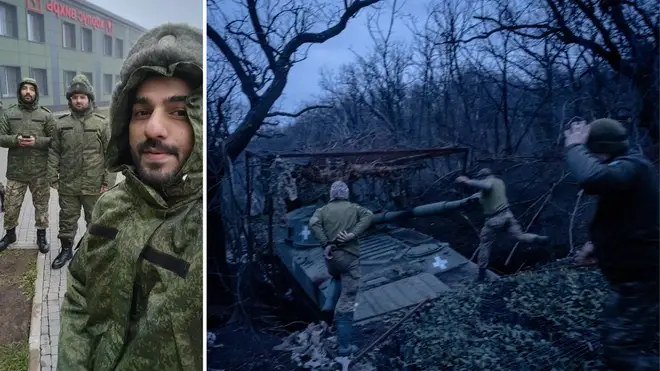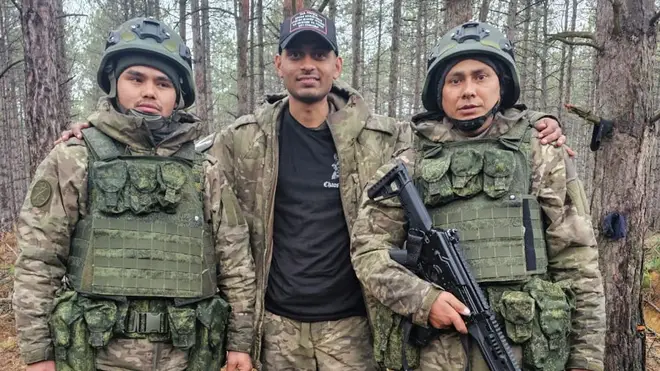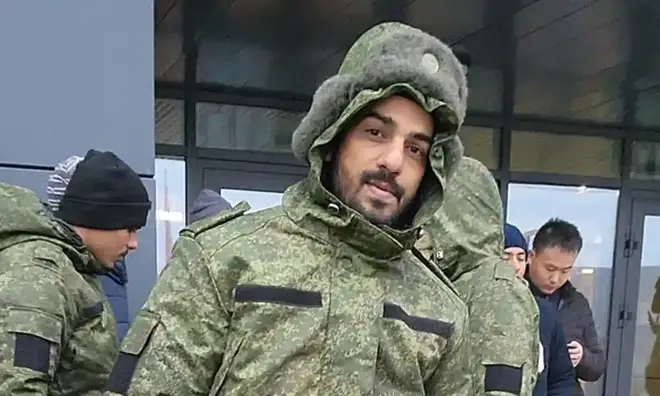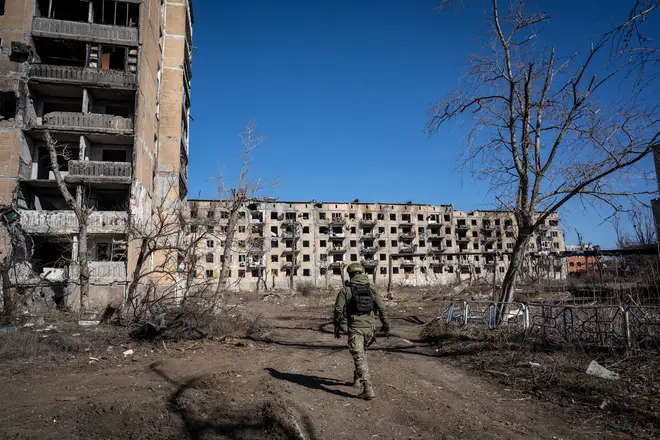
Oli Dugmore 4am - 7am
13 March 2024, 11:09 | Updated: 13 March 2024, 11:32

A number of men from India and Nepal who travelled to Russia on the promise of employment have ended up on the front lines.
According to the Guardian, accounts from these men and their families demonstrate how they were coerced into joining the Russian armed forces.
After arriving in the country, they signed contracts written in Russian and had their passports taken away.
Only then would they realise they had committed themselves to a year in the forces, with no way out except years in prison.
After less than two weeks of weapons training, many have been shipped to conflict zones.

The family of 23-year-old Hemil Mangukiya said he left his village in Gujurat, India, in December to make a better living in Russia.
He had seen a recruitment video on YouTube and he believed he was going for a security job.
However, he then told his family he had been sent to a month-long military training camp and then taken to the frontlines, where he was made to dig trenches, carry ammunition and operate guns.
In February the phone calls stopped and his family learnt he had died in a missile strike somewhere in Ukraine.
“I think he hid from us the danger he was in,” his father Ashwin Mangukiya told the Guardian.
“Our entire family is devastated by this. We are still trying to get back his dead body.”
On Wednesday, it was reported another Indian national, Mohammad Afsan, had died on the frontlines.
He travelled to Moscow in November for what he thought was a job as a security guard.
“He had no idea he was being sent to a war zone,” said his brother Mohammad Imran.

In January, Nepal banned people from travelling to Russia or Ukraine for employment.
The Department of Employment issued a notice saying it had reports of Nepalese nationals being killed in the Russian army.
Nandaram Pun, from Rolpa, Nepal, said he had been promised a job in Germany through an agent he met on social media.
He was told he needed to fly to Russia as a transit stop.
But, after being collected in Moscow, he was taken to a military training camp and taught how to use a gun.
He then realised Germany had been a ruse.
He was then sent to Bakhmut in eastern Ukraine where there were four other Nepalis and two Indians in the bunkers with him, alongside Russian troops and commanders.

Pun was later injured in a Ukrainian drone attack while transporting weapons.
“We had no idea about the drone attacks. My legs, thighs and right hand were hit by shrapnel,” he said.
The Indian government has acknowledged 20 Indian nationals are working for the Russian army.
They said they were “trying our level best for their early discharge”.
Amrit Bahadur Rai, a spokesperson for Nepal’s ministry of foreign affairs, said they were working “constantly” to bring people back.
However, the exact number of their citizens in Russia is not known.
Rai said 245 families had filed petitions claiming that their relatives were trapped in the army there, and five more were known to have been taken as prisoners of war by Ukraine.
He said he was first taken to a hospital in Kaspiysk, in Dagestan, but has since moved - but not knowing Russian, is not sure where he is.
Several fellow Nepali fighters are also in hospital, with one missing and another in prison after attempting to escape.
“I don’t want to be cured, because if they think I am better, then they will send me back to war again,” said Pun, who added that his efforts to get the Nepal authorities to rescue him had failed and that he does not have his passport.